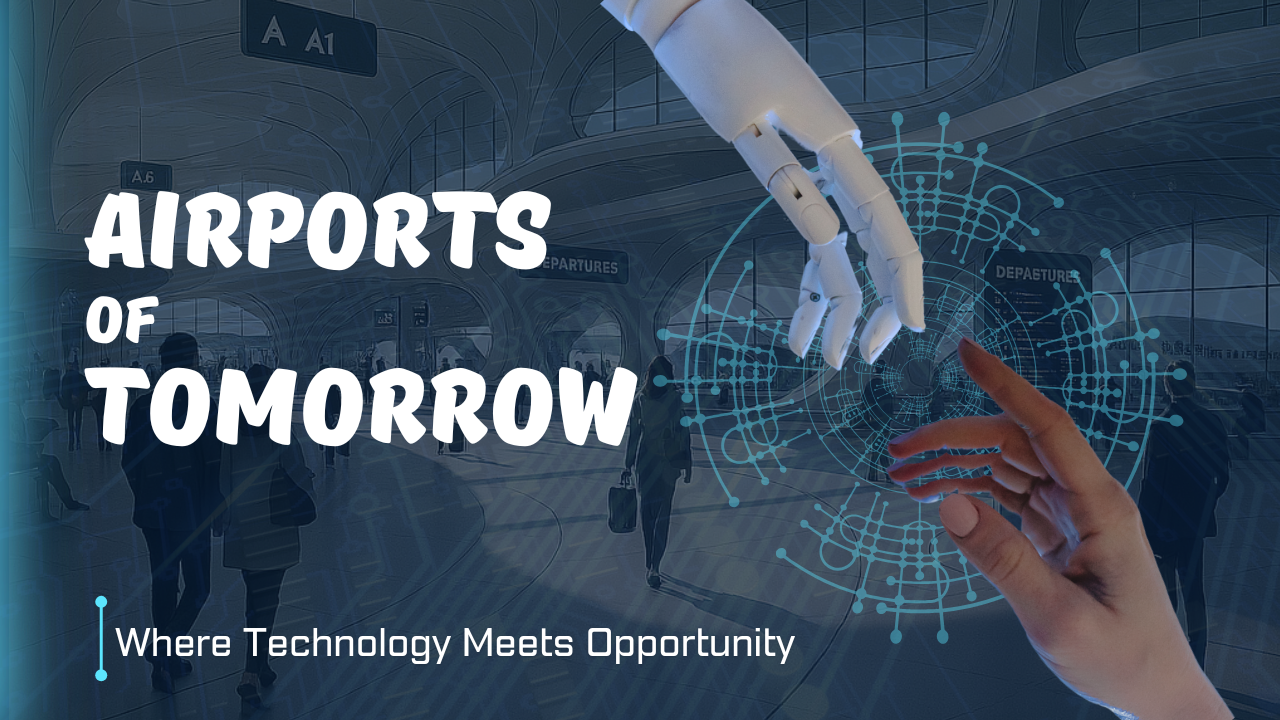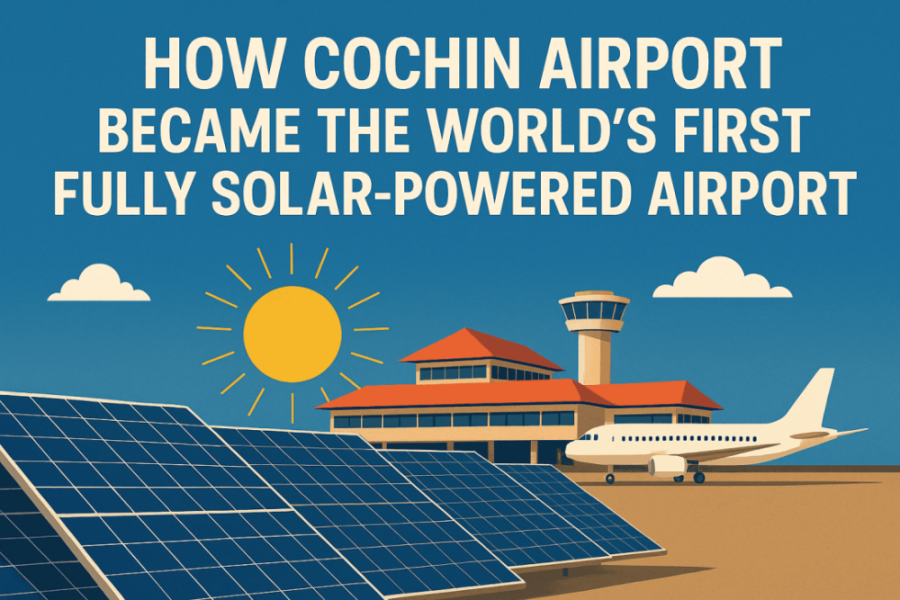Airports of Tomorrow: Where Technology Meets Opportunity
Human beings have always been fascinated by the mysteries of flight. The history of aviation showcases our relentless pursuit of progress—from ancient kites to supersonic jets. A major turning point came in 1903, when the Wright brothers launched the first powered flight, ushering in a new era of transportation. Today, we stand on the brink of another revolution: the transformation of airports into smart, technology-driven hubs.
Why Air Travel Continues to Dominate?
Air travel has become one of the most efficient and preferred modes of transportation. The ability to travel across countries, continents, and oceans in mere hours, with enhanced safety, comfort, and convenience, makes it the go-to choice for both personal and business travel. With expanding global connectivity, airports play a vital role in uniting people and economies.
From Terminals to Smart Airports: A Digital Makeover

Airports have evolved far beyond mere terminals. The concept of smart airports is now a reality. Advanced technologies are being integrated into operations, turning airports into high-tech ecosystems. These changes focus on improving passenger experience, streamlining operations, and enhancing safety protocols.
Automation and Passenger Convenience
Automation is reshaping every aspect of airport operations.
- Self-check-in kiosks and automated bag drop stations reduce wait times.
- AI-powered air traffic control systems improve flight coordination and safety.
- Robots and automated cleaning systems are improving hygiene and efficiency.
For passengers, these advancements mean smoother journeys, less stress, and fewer delays.
The Rise of Biometric and Contactless Technology
Biometric systems such as facial recognition, iris scanning, and fingerprint verification have enabled paperless, contactless travel.
- Boarding and immigration processes are faster and more secure.
- Smart Terminals use IoT sensors and real-time tracking to monitor passenger flow and manage luggage more efficiently.
- These technologies minimize physical contact and improve security standards.
Challenges in Adopting Smart Airport Technology
While smart airport technology offers many benefits, it comes with challenges:
- Digital literacy gaps may cause confusion for some travelers.
- Global inconsistency in implementing new systems may limit user familiarity.
- Security concerns around biometric data handling must be addressed to prevent misuse or data breaches.
- Upgrading infrastructure to support smart systems also involves significant financial investment and integration with legacy systems.
The Impact on Careers: Opportunities for Aviation Students
For students in Airline and Airport Management, the shift to smart airports opens up exciting new career paths. Future-ready roles include:
- Automation Support Executive
- Airport System Analyst
- Operational Data Coordinator
- Passenger Experience Executive
- Biometric Technology Officer
These roles require strong technical understanding, problem-solving skills, and adaptability to modern airport environments.
Skills Aviation Students Need Today
To succeed in the evolving aviation sector, students must:
- Gain expertise in airport management systems, AI applications, and biometric technology
- Understand safety regulations, international protocols, and passenger experience optimization
- Stay updated on global airport trends and emerging tools
- Develop strong communication and leadership skills to work in cross-functional teams
By doing so, they position themselves as valuable assets in the smart airport ecosystem.
Smart, Sustainable, and Human-Centric Airports
The future of airports is not only smart but also sustainable and human-focused.
- Green initiatives, energy-efficient designs, and carbon neutrality goals are key focuses.
- Despite automation, human-centric design remains essential to accommodate diverse passenger needs.
The industry is looking for professionals who can bridge the gap between technology and human service—individuals who are tech-aware, emotionally intelligent, and resilient.
Final Call: Be the Future of Aviation
The Wright brothers transformed the world in the 20th century with innovation. Now, it’s your turn.
Students in aviation today are not merely learners—they are future leaders, innovators, and change-makers. By embracing new trends and developing relevant skills, they can be a vital part of an industry that is constantly evolving.
Call to Action (CTA)
Are you ready to shape the future of aviation?
🔹 Explore diploma and degree and PG programs in Airline and Airport Management.
🔹 Start developing skills for smart airport careers today.
🔹 Stay updated with industry trends and become future-ready.
The sky is no longer the limit—it’s just the beginning.






